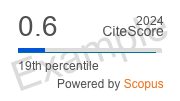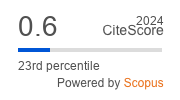The impact of carbohydrate metabolism disorders to the prognosis of chronic heart failure in patients with lung damage due to COVID-19
https://doi.org/10.29001/2073-8552-2025-40-2-83-91
Abstract
Introduction. The COVID-19 pandemic causes an increase in cardiovascular pathologies, such as chronic heart failure (CHF) in the post-Covid period. The changes may be associated with inflammation, immune dysregulation, and hyperglycemia. An important task for healthcare is to study the effect of carbohydrate metabolism disorders on CHF in patients after COVID-19. Aim: To study the impact of carbohydrate metabolism disorders on the prognosis of CHF in postCOVID-19 patients.
Material and Methods. A retrospective analysis of patients of the Tyumen Cardiology Research Center, Tomsk NMRC (TCRC) (n = 350) was carried out. The patients had COVID-19 in 2020–2021 and were observed at the TСRC from April 10, 2020 to July 11, 2022. The study included 116 patients. Patients were divided into 2 groups: with CHF (n = 63) and without CHF (n = 53). Verification of CHF was carried out according to the clinical guidelines "Chronic Heart Failure" (2020), approved by the Ministry of Health of the Russian Federation. A comprehensive examination (cardiologist examination, laboratory and instrumental examination) of the participants was performed 3 and 12 months after suffering lung damage from COVID-19. Results. Patients with CHF in the post-Covid showed statistically significantly higher levels of HbA1c (p = 0.01), LDL-C (p < 0.01), IL-8 (p < 0.01) compared to patients without CHF. According to the results of ROC analysis, HbA1c predicts the development of CHF in the post-Covid. Area under the ROC is 0.823±0.061 with 95% CI: 0.704-0.42 (p = 0.001). The threshold value for HbA1c is 5.95%. Statistically significant logistic regression model for the development of CHF within a year after COVID-19 was obtained. Model indicators: HbA1c, LDL-C, IL-8, presence of ischemic heart disease. ROC analysis of the model AUC = 0.91 ± 0.04 (p < 0.001). Sensitivity – 90.1%, specificity – 79.3%.
Conclusion. HbA1c, LDL-C and IL-8 have a high prognostic significance in the development of CHF in postCOVID-19 patients. A statistically significant model for the prognosis of CHF has been developed.
About the Authors
I. N. RedkinaRussian Federation
Irina N. Redkina, Endocrinologist, Graduate Student, Department of Therapy with a Course in Endocrinology, TSMU; Endocrinologist of Tyumen Cardiology Research Center – Branch of the Tomsk NRM
54, Odesskaya str., Tyumen, 625023;
111, Melnikaite str., Tyumen, 625026
L. A. Suplotova
Russian Federation
Lyudmila A. Suplotova, Dr. Sci. (Med.), Professor, Head of Endocrinology Course of Therapy Postgraduate Education Department
54, Odesskaya str., Tyumen, 625023
M. I. Bessonova
Russian Federation
Marina I. Bessonova, Dr. Sci. (Med.), Honored Doctor of the Russian Federation, Director
111, Melnikaite str., Tyumen, 625026
K. S. Avdeeva
Russian Federation
Ksenia S. Avdeeva, Dr. Sci. (Med.), Head of the Laboratory of Rehabilitation and Prevention of Cardiovascular Diseases
111, Melnikaite str., Tyumen, 625026
E. I. Yaroslavskaya
Russian Federation
Elena I. Yaroslavskaya, Dr. Sci. (Med.), Professor, Head of the Laboratory of Instrumental Diagnostics, Educational and Methodological Department
111, Melnikaite str., Tyumen, 625026
T. I. Petelina
Russian Federation
Tatyana I. Petelina, Dr. Sci. (Med.), Professor, Head of the Department of Educational and Methodological Work, Head of the Laboratory of Clinical Diagnostics and Molecular Genetic Research, Deputy Director for Research
111, Melnikaite str., Tyumen, 625026
References
1. Alvarez-Garcia J., Jaladanki S., Rivas-Lasarte M., Cagliostro M., Gupta A., Joshi A. et al. New heart failure diagnoses among patients hospitalized for COVID-19. J. Am. Coll. Cardiol. 2021;(77):2260–2262. https://doi.org/10.1016/j.jacc.2021.03.006
2. Masalkina O.V., Koziolova N.A., Syuzeva N.M. Prevalence and characteristics of newly diagnosed chronic heart failure in patients with shortness of breath who have had a new coronavirus infection. Russian Journal of Cardiology. 2023;28(3):5385. (In Russ.). https://doi.org/10.15829/1560-4071-2023-5385
3. Karaseva A.A., Khudiakova A.D., Garbuzova E.V., Ragino Yu.I., Logvinenko I.I. Severity of Postcovid Syndrome: A Systematic Review. The Russian Archives of Internal Medicine. 2024;13(6):422 (In Russ.). https://doi.org/10.20514/2226-6704-2023-13-6-422-435
4. Man D.E., Andor M., Buda V., Kundnani N.R., Duda-Seiman D.M., Craciun L.M. et al. Insulin Resistance in Long COVID-19 Syndrome. J. Pers. Med. 2024;14(9):911. https://doi.org/10.3390/jpm14090911
5. Tandon P., Abrams N.D., Avula L.R., Carrick D.M., Chander P., Divi R.L. et al. Unraveling links between chronic inflammation and long COVID: Workshop Report. J. Immunol. 2024;(212):505–512. https://doi.org/10.4049/jimmunol.2300804
6. Zadeh F.H., Wilson D.R., Agrawal D.K. Long COVID: complications, underlying mechanisms, and treatment strategies. Arch. Microbiol. Immunol. 2023;(7):36–61. PMID: 37388279.
7. Goel V., Raizada A., Aggarwal A., Madhu S.V., Kar R., Agrawal A. et al. Long-term persistence of COVID-induced hyperglycemia: a cohort study. Am. J. Trop. Med. Hyg. 2024;(110):512–517. https://doi.org/10.4269/ajtmh.22-0695
8. Olumuyide E., Agwuegbo C.C., Ahmed E.N. Exploring the heart failure connection in long COVID patients: a narrative review. Cureus. 2024;16(4):58694. https://doi.org/10.7759/cureus.58694
9. La Roi-Teeuw H.M., van Smeden M., Geersing G.J., Klungel O.H., Rutten F.H., Souverein P.C. et al. Incidence and individual risk prediction of post-COVID-19 cardiovascular disease in the general population: a multivariable prediction model development and validation study. Eur. Heart J. Open. 2023;3(6):101. https://doi.org/10.1093/ehjopen/oead101
10. Zhou F., Yu T., Du R., Fan G., Liu Y., Liu Z. et al. Clinical course and risk factors for mortality of adult inpatients with COVID-19 in Wuhan, China: a retrospective cohort study. Lancet. 2020;395(10229):1054–1062. https://doi.org/10.1016/S0140-6736(20)30566-3
11. Conte C., Cipponeri E., Roden M. Diabetes mellitus, energy metabolism, and COVID-19. Endocr. Rev. 2024;(45):281–308. https://doi.org/10.1210/endrev/bnad032
12. Wong N.D., Sattar N. Cardiovascular risk in diabetes mellitus: epidemiology, assessment and prevention. Nat. Rev. Cardiol. 2023;(20):685–695. https://doi.org/10.1038/s41569-023-00877-z
13. Menezes D.C., Lima P.D.L., Lima I.C., Uesugi J.H.E., Vasconcelos P.F.D.C., Quaresma J.A.S. et al. Metabolic profile of patients with long COVID: a cross-sectional study. Nutrients. 2023;(15):1197. https://doi.org/10.3390/nu15051197
14. Durrington P. Blood lipids after COVID-19 infection. Lancet Diabetes Endocrinol. 2023;11(2):68–69. https://doi.org/10.1016/S22138587(22)00389-8
15. Liu T., Kang H. The risk factors for long term cardiovascular symptoms in patients after coronavirus disease 2019 infection. Ann. Med. 2024;56(1):2407065. https://doi.org/10.1080/07853890.2024.2407065
16. Tilikete C., Zamali I., Meddeb Z., Kharroubi G., Marzouki S., Dhaouadi T. et al. Exploring the landscape of symptom-specific inflammatory cytokines in post-COVID syndrome patients. BMC Infect. Dis. 2024;24:1337. https://doi.org/10.1186/s12879-024-10222-5
17. Sharma A., Garcia G. Jr., Wang Y., Plummer J.T., Morizono K., Arumugaswami V. et al. Human iPSC-derived cardiomyocytes are susceptible to SARS-CoV-2 infection. Cell Rep. Med. 2020;1(4):100052. https://doi.org/10.1016/j.xcrm.2020.100052
18. Sukosd E.I., Kundnani N.R., Moise H.E., Stelian M., Bodea O.M., Minodoara A. Quality of life of chronic heart failure patients during and after COVID-19: Observational study using EuroQoL-visual analogue scales. Med. Sci. Monit. 2024;(30):943301. https://doi.org/10.12659/MSM.943301
19. Schultheiß C., Willscher E., Paschold L., Gottschick C., Klee B., Bosurgi L. et al. Liquid biomarkers of macrophage dysregulation and circulating spike protein illustrate the biological heterogeneity in patients with post-acute sequelae of COVID-19. J. Med. Virol. 2023;95(1):28364. https://doi.org/10.1002/jmv.28364
Review
For citations:
Redkina I.N., Suplotova L.A., Bessonova M.I., Avdeeva K.S., Yaroslavskaya E.I., Petelina T.I. The impact of carbohydrate metabolism disorders to the prognosis of chronic heart failure in patients with lung damage due to COVID-19. Siberian Journal of Clinical and Experimental Medicine. 2025;40(2):83-91. (In Russ.) https://doi.org/10.29001/2073-8552-2025-40-2-83-91
JATS XML





.png)





























